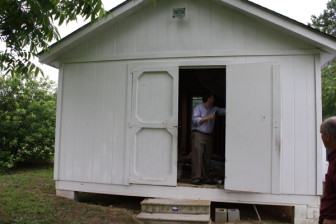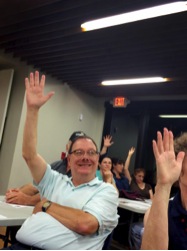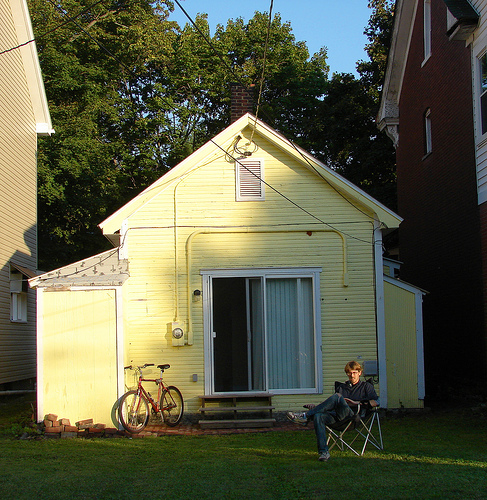Residents of the Mordecai community unanimously voted last week to move forward with becoming the City of Raleigh’s first pilot neighborhood for backyard cottages.
The Mordecai Citizens Advisory Council, MCAC, first made a motion in June to petition the city to add backyard cottages to the city’s Unified Development Ordinance, which outlines development rules.
The motion was approved with a 26-0 vote last Tuesday.
According to MCAC co-chair Kim Gazella, the overall community response to the project was positive, but during Tuesday’s meeting community members also raised concerns about regulation policies, parking and privacy.
“My concern is having regulation of backyard cottages so that they don’t become problematic, distractors to the community,” Mordecai homeowner Kathleen Payne said. “It is hard to get behind something that is an addition when I know that there are current tenants and owners who aren’t taking care of their primary residences.”

An example of an accessory dwelling. This photo was taken on a property in Wake County, outside Raleigh city limits.
Wanda Urbanska said her experience with a backyard cottage over the last five years has been great for her family. In 2010, she bought a home in Five Points with her mother. Urbanksa said she lived with her teenage son in the front property while her mother, now in her 90s, lived in the back.
“It has been a tremendous opportunity for us to live in a multigenerational housing situation and each have our own space and offers a lot of flexibility,” Urbanska said. “I think it adds diversity to your housing.”
Backyard cottages are what the city’s legal documents call detached Accessory Dwelling Units — buildings that are about 300 to 550 square-foot secondary residences on a property.
“I would be less focused on the fears on what could go wrong but more focused on the great opportunities this will and can provide,” Urbanska said.
Thomas Barrie, professor of architecture at N.C. State University, helped direct a student research and design project that envisioned the project for Mordecai.
According to Barrie, people are using the cottages for a variety of reasons, from providing a space for their caregiver to live to helping them qualify for a higher mortgage.
N.C. State student and faculty studies show that more people want to use backyard cottages to age in place, trade down without having to move out, have elderly parents live on the property or have a place for their grown children to live, Barrie said.

Mordecai residents vote in favor of backyard cottages
“If it is approved for Mordecai and gets established in other neighborhoods, what we will see is some diversity of housing,” Barrie said.
Barrie said the good news for those that are nervous about backyard cottages is that not many of them will be built.
“It won’t make a huge impact,” Barrie said. “But for those of us that would like to see diversity housing, that’s not such good news.”
Philip Bernard, a MCAC leadership member, said during his introduction that the motion to vote does not mean backyard cottages will start being built immediately, as city council still needs to approve the concept, which it rejected two years earlier.
